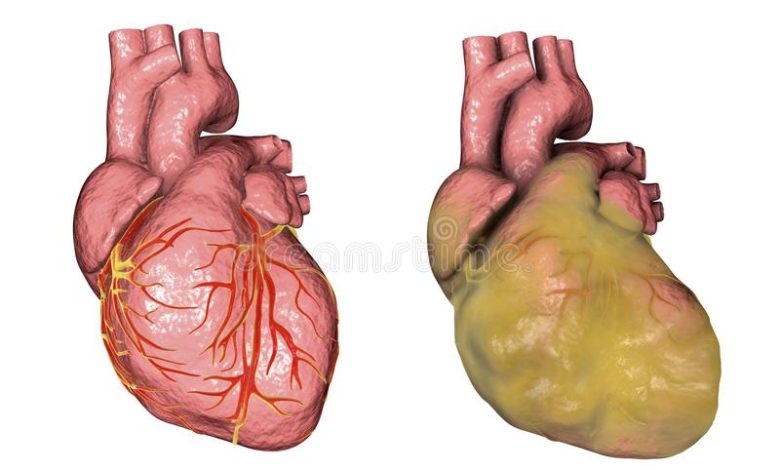How Obesity Affects Heart Health

Obesity is a disorder that has caused lots of new issues for people all over the world. Obesity is commonly diagnosed using the body mass index (BMI); a BMI of more than 30 is considered obese.
Obese people are likely to develop a variety of ailments, including cardiovascular diseases. However, because Obesity is influenced by body composition, another factor, waist circumference, is used to identify Obesity appropriately. If you notice any obese signs or have excess fat deposits consider visiting the best heart hospital in Hyderabad; as we all know, early diagnosis is the careful and ultimate protection.
Globally, there are more obese individuals than underweight, but it is not only limited to adults. Obesity in childhood is linked to an increased risk of adult obesity, premature death, and disability. Obese children have breathing difficulties, a higher risk of fractures, hypertension, early signs of cardiovascular disease, insulin resistance, psychosocial consequences, and more significant future hazards. Inadequate prenatal, newborn, and child nutrition puts children in low- and middle-income nations at a higher risk.
Obesity is a significant contributor to a wide range of disorders. Obesity can harm your heart and health in a variety of ways. Here are a few ways Obesity can affect your heart health.
The Risk of High Cholesterol
Obesity can cause various problems, but heart disease is one of the most severe. Obese people have been known for a long time to have higher blood pressure, higher bad cholesterol, and lower good cholesterol levels. Cholesterol is necessary for your body’s immune system to function correctly. The issue arises when the bad cholesterol in your body outweighs the good cholesterol. Obesity also affects how your body processes cholesterol, which involves the production and processing of lipoproteins like cholesterol and triglycerides in your body. A high level of triglycerides leads to a greater cholesterol level, putting you at risk for heart disease.
The Danger of Diabetes
Obesity can also cause insulin resistance when your body becomes partially sensitive to insulin’s glucose-lowering actions. Insulin carries glucose (sugar) from your bloodstream to your body’s cells and is used as energy. Insulin resistance increases blood sugar levels over time, leading to prediabetes and, eventually, diabetes. Diabetes doubles the chance of getting heart disease in women. Obesity is the leading cause of type 2 diabetes. Those with a BMI greater than 35 have a 93 percent risk of diabetes.
The strain on the Heart and Hypertension
Increased blood pressure (hypertension) is a common cause of heart attack in obese people. Excess body fat strains your heart since it has to work harder to keep the blood circulating in your body. It raises your blood pressure, which is an issue in and of itself. Because of the increased pressure, your heart muscle thickens over time. It raises the risk of atrial fibrillation and heart failure. Hypertensive heart disease is caused by chronically high blood pressure (greater than 120/80 mmHg). People’s heart disease risk grows as they age with high blood pressure and people above 65 are more likely to have heart failure.
Obesity Leads to Sleep Apnea
Obesity is a common cause of sleep apnea, often caused by increased fat deposits in the neck, constricting or blocking the upper airway when sleeping. This sleep disorder leads to breathing problems and produces little or no sleep. Sleep apnea increases the risk of high blood pressure, heart disease, and diabetes, in addition to respiratory difficulties. Sleep apnea, if left untreated, raises the risk of cardiac arrhythmias and cardiovascular diseases. Patients with sleep apnea are 2-4 times more likely to have heart arrhythmias (abnormal heart rhythms) than those without the disorder. Heart failure is 140 percent more likely with sleep apnea, and coronary heart disease is 30 percent more likely.
Heart Failure
Obesity causes heart failure in a variety of ways. More body fat means more blood volume, so your heart must work harder to pump all the extra liquid. This causes adverse changes in the structure and function of the heart over time, which can eventually lead to heart failure. Obesity strains the heart and causes hypertension, sleep apnea, and other problems. Obese individuals are more likely to develop coronary heart disease, which restricts blood flow to the heart and can cause symptoms such as angina (chest discomfort) or even a heart attack if the heart’s blood supply is entirely cut off.
How to Manage Obesity and Help Your Heart?
Obesity isn’t simply a cosmetic problem. It might harm your entire body. Given the health dangers linked with obesity, losing weight is your sole option for avoiding diseases caused by fat. Even if you lose only 5-10% of your body weight, you can lower your cholesterol and improve your health.
Gradual weight loss is the key to obesity, as losing weight is difficult. Here are a few suggestions to assist you in losing weight:
Diet Modifications
Simple dietary changes can help you lose weight while also protecting your heart. Increasing the number of fruits and vegetables in your diet will help you lose weight while providing critical nutrients. Low-fat protein sources and nutritious grains are also excellent choices for heart health.
Regular Exercises
Add exercise to your daily routine to become more active. Begin with short-duration physical activity and gradually increase your stamina. Every day, exercise or walk for at least 30 minutes. With time, you’ll be able to increase your physical activity.
Regular Health Checkups
Regular health checkups are used to monitor heart health. While certain heart failure warning signs can only be identified in a lab, others are simple to monitor at home. It is best to watch for an irregular heartbeat or abnormal patterns. Early detection of heart damage can be helped by being aware of fatigue and shortness of breath.
The Relationship Between Stress and Sleep Deprivation
Stress and sleep are interrelated; they have a close association with one another. Stress can cause sleep deprivation, and sleep deprivation can trigger stress. The human body requires restful sleep to function correctly. However, an increasing number of people are suffering from sleep disturbances due to anxiety, tension, and worry.
Sleep deprivation refers to a situation where a person is unable to fall asleep or maintain a sleep state throughout the night. People who are exposed to prolonged stress tend to have difficulty sleeping. They tend to have racing thoughts, anxiety, and difficulty in switching off their minds, making it harder to fall asleep.
On the other hand, sleep deprivation also increases stress levels. It can cause irritability, lack of focus, mood swings, and other negative consequences. It makes people more vulnerable to anxiety and depression. It’s a vicious cycle where stress can cause sleep deprivation, and sleep deprivation can worsen stress levels.
Sleep is a fundamental biological need that supports cognitive, emotional, and physical health. Lack of sleep can lead to increased blood pressure, heart disease, obesity, and diabetes. In addition, sleep deprivation causes an imbalance in the production of hormones, including cortisol and melatonin. These hormonal imbalances can impact mood, cognitive function, and overall health.
Managing stress and sleep deprivation is essential for overall health and well-being. Here are a few tips to reduce stress and improve sleep quality:
Regular Exercise Regular exercise can help reduce stress levels, improve mood, and enhance sleep quality.
Relaxation Techniques Meditation, deep breathing, and other relaxation techniques can help reduce stress levels and promote sleep.
Sleep Hygiene Sleep hygiene refers to practices that help promote sleep, such as avoiding caffeine and alcohol before bedtime, maintaining a regular sleep schedule, and keeping the sleep environment comfortable and relaxing.
Seek Professional Help If you are experiencing chronic stress or sleep disturbances, it is essential to seek professional help. Mental health professionals can provide guidance and support in managing stress and sleep deprivation.
Stress and sleep deprivation are closely linked, and managing one can help manage the other. Prioritizing restful sleep and reducing stress levels can improve overall health and well-being.
The Final Word
There are several options for reducing the impact of obesity not only on heart health but also on overall health. Those dealing with the condition should consult the best cardiologist in Hyderabad to choose the best treatment option for their health and lifestyle.



